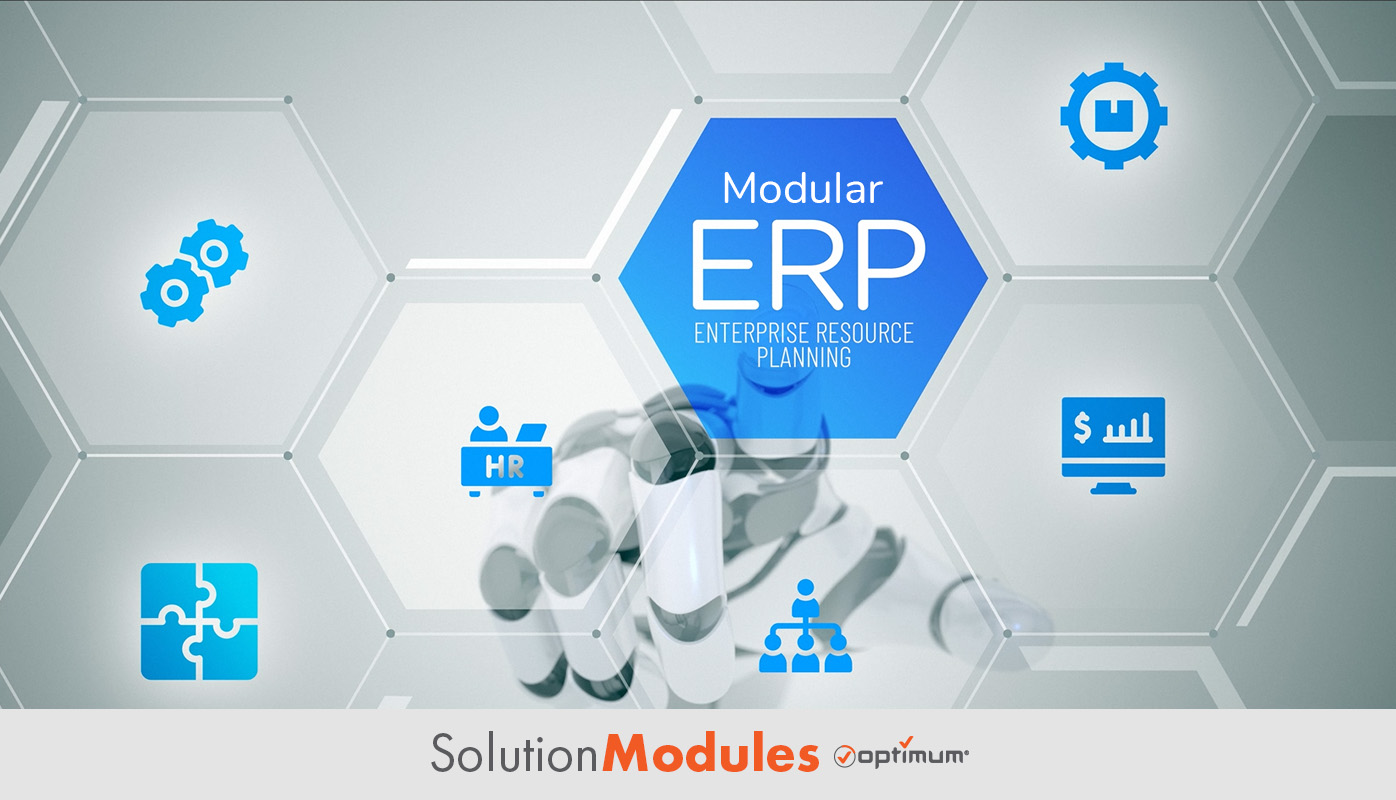
The Complete Guide to Modular ERP: Advantages, Disadvantages, and Implementation
Table of Contents
- What is a Modular ERP System?
- Advantages of Modular ERP
- Disadvantages of Modular ERP
- Key Modules in a Modular ERP System
- How to Implement a Modular ERP System
- Modular ERP vs Traditional ERP
- FAQ
- Conclusion

Modular ERP give businesses the ability to implement and customize only the modules they need, offering the flexibility, scalability, and cost savings modern organizations demand. Solution Modules follow this modular ERP approach, enabling companies to build tailored solutions that integrate seamlessly with existing processes. Unlike traditional ERP systems, modular ERP empowers businesses to adapt and grow without added complexity or cost.
In this guide, we’ll explore what modular ERP is, its advantages and disadvantages, the key modules you should consider, and how to implement it successfully in your organization.
Key Takeaways
- Modular ERP allows businesses to select only the necessary modules for cost savings.
- It offers scalability as businesses grow and expand their needs.
- Implementation is faster and less disruptive compared to traditional ERP systems.
- Modules can be easily integrated with third-party applications to enhance functionality.
What is a Modular ERP System?
A Modular ERP system is an Enterprise Resource Planning solution made up of different standalone modules that cater to specific business processes. Unlike a traditional monolithic ERP system, a modular ERP system allows businesses to select and integrate only the modules they need, making it highly customizable and scalable.
Modules can range from financial management and human resources to inventory management and customer relationship management (CRM). These modules are designed to work together seamlessly or can be implemented separately depending on the business requirements.
Advantages of Modular ERP
Modular ERP systems offer several advantages that make them a great choice for businesses looking for a flexible and scalable solution:
Cost Savings
Since businesses can purchase only the modules they need, modular ERP is more cost-effective than traditional ERP systems, which require purchasing a complete suite of features.
Flexibility
Modular ERP is adaptable and can be easily customized to fit unique business processes and requirements, ensuring the system works for the specific needs of the business.
Scalability
As businesses grow, they can seamlessly add more modules to the ERP system, allowing it to scale with the organization’s needs.
Disadvantages of Modular ERP
While modular ERP systems have many benefits, there are some challenges to consider:
Integration Complexity
As businesses integrate multiple standalone modules, compatibility issues can arise, potentially requiring additional IT resources to ensure smooth functionality.
Vendor Lock-in
Businesses may become reliant on specific ERP vendors due to proprietary integration limitations, which can restrict flexibility.
Key Modules in a Modular ERP System
Some of the most common modules found in a modular ERP system include:
- Finance & Accounting: Manages financial transactions, reporting, and budgeting.
- Human Resources (HR): Handles employee records, payroll, and compliance.
- Customer Relationship Management (CRM): Tracks customer interactions and sales.
- Inventory Management: Optimizes stock levels and supply chain management.
- Manufacturing: Oversees production planning and quality control.
How to Implement a Modular ERP System
Implementing solution modules involves several key steps:
- Assess Business Needs: Identify which modules are necessary for your operations.
- Choose a Scalable Vendor: Select an ERP provider that allows easy integration and expansion.
- Start with Core Modules: Begin with essential modules like finance and HR, then expand.
- Train Employees: Provide necessary training to ensure effective use of the new system.
- Monitor and Expand: Continuously evaluate the system's performance and add modules as needed.
Modular ERP vs Traditional ERP
Here's a quick comparison between modular ERP and traditional ERP:
| Feature | Modular ERP | Traditional ERP |
|---|---|---|
| Flexibility | High | Limited |
| Implementation Time | Faster | Longer |
| Cost | Pay-as-you-go | High upfront cost |
| Scalability | Easy to scale | Difficult to modify |
FAQs
What is a modular ERP system?A modular ERP system is a type of enterprise resource planning software that is made up of different modules, each focusing on a specific business function, such as finance, sales, inventory, or HR. Businesses can select and implement only the modules they need, allowing for flexibility and scalability.
What are the benefits of using a modular ERP system?The main benefits of a modular ERP system include flexibility, scalability, cost-effectiveness, and customization. Businesses can add or remove modules as their needs evolve, making it easier to adapt to changes and scale operations without overpaying for unnecessary features.
How does modular ERP differ from traditional ERP systems?Traditional ERP systems usually offer a one-size-fits-all solution, where businesses are required to purchase and implement the entire system, even if they only need a few features. Modular ERP systems, on the other hand, allow businesses to choose specific modules, making it easier to customize the system and only pay for what is needed.
Can a modular ERP system be integrated with existing software?Yes, modular ERP systems are designed to integrate with a wide range of existing software applications, including CRM systems, supply chain management tools, and accounting software. Integration is often seamless, and many modular ERP solutions come with pre-built connectors to ensure compatibility.
What are the challenges of implementing a modular ERP system?While modular ERP systems offer many advantages, challenges can include the complexity of choosing the right modules, integration with other systems, and the need for specialized knowledge during implementation. Additionally, businesses may face resistance to change from employees accustomed to existing workflows.
Is a modular ERP system suitable for small businesses?Yes, modular ERP systems are ideal for small businesses because they offer scalability. Small businesses can start with just a few essential modules and add more as they grow, ensuring they only pay for what they need at each stage of their development.
How can modular ERP help with business scalability?Modular ERP systems allow businesses to easily add new functionality as they grow. Whether expanding to new markets, launching new products, or increasing operations, businesses can scale their ERP system by adding relevant modules without having to overhaul the entire system.
Conclusion
Modular ERP systems offer businesses a flexible, cost-effective, and scalable solution tailored to their specific needs. With careful planning and a strategic implementation approach, businesses can enhance their operations and adapt to future growth.
If you’re ready to take the next step in transforming your business with a modular ERP system, Optimum Solution Modules can help. Learn more about our flexible, no-code solution that grows with your business and contact us today!